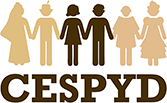Publicaciones
Community psychology contributions to the study of social inequalities, well-being and social justice
Reference: García-Ramírez, M., Balcázar, F. y De Freitas, C. (2014). Community psychology contributions to the study of social inequalities, well-being and social justice. Psychosocial Intervention, 23, 79-81.
Abstract: This special issue of the Journal of Psychosocial Intervention aims to contribute to the understanding of human well-being as a matter of social justice. Inequities in health and well-being are closely linked to social inequalities and addressing them involves the improvement of the quality of life and living conditions of communities. Although reaching a more just society requires systemic changes, actions aimed at groups that are at greater risk of multiple vulnerabilities must be intensified in order to reduce the slope of the social gradient of health and well-being. Community psychology embraces as one of its key principles to advocate for social change through the empowerment of disadvantaged groups, such as children and youth living in poverty, women suffering violence, people with disabilities and elderly immigrants. The contributions of this monograph offer courses of action for a scientific agenda whose goal is to provide opportunities for all individuals to achieve meaning and greater control over the resources they need for their well-being and prosperity.
Keywords: Community psychology, Well-being, Social justice, Health inequity, Social inequalities, Health 2020.
Full text: http://www.copmadrid.org/webcopm/publicaciones/social/in2014v23n2a1.pdf
